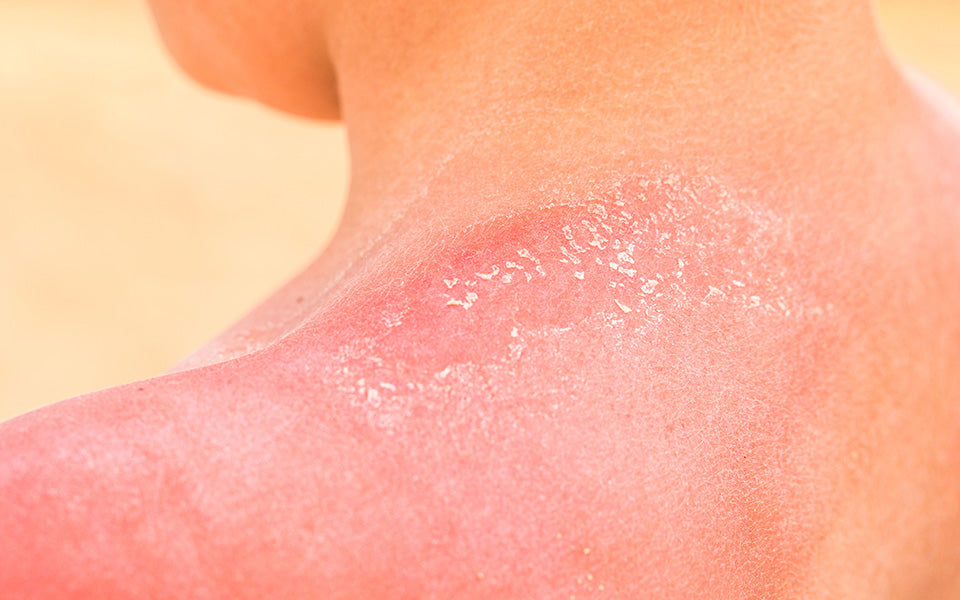This is a common symptom of sun poisoning, which is when a person's skin turns white after being exposed to ultraviolet radiation. Within hours, the situation gets worse, and it can lead to various other symptoms such as severe itching, chills, and nausea. This article aims to explain what sun poisoning is, how long it can last, and how to prevent it.
What is Sun Poisoning?
A sunburn can affect your entire body, and sun poisoning is a reaction that can make you feel sick. Aside from painful burns, you may experience nausea, vomiting, exhaustion, and fever. Severe symptoms may appear within a few days. Mild symptoms may last for a few hours.
The inflammation that develops after a sunburn can lead to swelling and tenderness. It can also affect the other parts of the body. Even severe sunburns can cause inflammation.
Getting sunburned can take less than 15 minutes.Prolonged exposure to ultraviolet radiation can lead to sun poisoning or even severe sunburn. The negative effects of sun poisoning can appear within a couple of days, and more serious issues can develop up to a week later.

Can Sun Poisoning Make People Sick?
Although sun poisoning is not caused by the harmful effects of ultraviolet radiation, it can still cause intense pain and other skin reactions. Some people experience nausea, dizziness, and general malaise due to dehydration.
If you are experiencing these symptoms, it is important that you drink enough water and keep hydrated. It's also important to avoid getting in contact with the infected area.
What are the Symptoms of Sun Poisoning?
If you are suffering from sun poisoning, then you may start experiencing the symptoms of regular sunburn. These symptoms can appear within a couple of hours to a day after being exposed to ultraviolet radiation.

How is Sun Poisoning Diagnosed?
If you think that you have sun poisoning, you should immediately see a doctor. They can help you prevent dehydration and other complications, and they can provide treatment. In some cases, an emergency room may be needed if you are experiencing flu-like or other symptoms, such as muscle aches or fever. Your doctor will also check your vital signs and determine the severity of your sunburn.

What is the Outlook for Sun Poisoning?
If left untreated, sun poisoning can develop into a serious condition that can worsen. A mild sunburn usually gets better within a week. On the other hand, if the damage is severe, sun poisoning can take up to a couple of weeks to completely heal.
One of the most important steps that you can take to prevent sun poisoning is to limit your exposure to ultraviolet radiation. You should apply sunscreen every day, regardless of the weather. It should be at least SPF30.
If you're swimming or sweating, you should apply sunscreen every two hours. You can reduce your exposure by wearing a hat and wearing cool clothing. Also, avoid the sun at its highest setting.

Other Types of Sun Poisoning
PMLE is a type of reaction that doesn't appear to be related to the disease or the drug. It can occur in people who are exposed to high levels of ultraviolet radiation. For instance, people who live in the north can get this type of reaction during their winter vacation.
Another type of PMLE, which can appear in Native Americans during spring and autumn, is an inherited condition that usually lasts for several weeks. The initial symptoms, such as burning and redness, can last for up to three days. Some of the other symptoms, such as swelling and pain, can last for up to a few hours. However, if the condition is severe, you should avoid prolonged exposure to the sun and apply sunscreen.

How to Prevent Sun Poisoning?
In order to prevent sun poisoning, you should follow the same precautions that you would apply to avoid sunburn.
Use a broad-spectrum sunscreen that has an effective protection factor of at least 30. Before going out, apply it 15 to 30 minutes before exposure and every two hours. You can also wear various types of protective clothing such as sunglasses, long sleeves, and gloves. You should avoid the peak of summer when you should be out in the sun between 10 am and 4 pm.

How Long does Sun Poisoning Take to Heal?
Depending on the severity of the burn, sun poisoning can last for several weeks. If you scratch or even fiddle with it, it could lead to infection, so it's important to see a doctor immediately if you notice any bleeding or swelling. Some of the treatments for sun poisoning include intravenous fluids, oral steroids, cold baths, and prescription painkillers.
Conclusion
If you notice any symptoms of sun poisoning, it's important that you seek medical attention right away. Your doctor can then determine the best treatment for your condition.
































Leave a comment
This site is protected by hCaptcha and the hCaptcha Privacy Policy and Terms of Service apply.